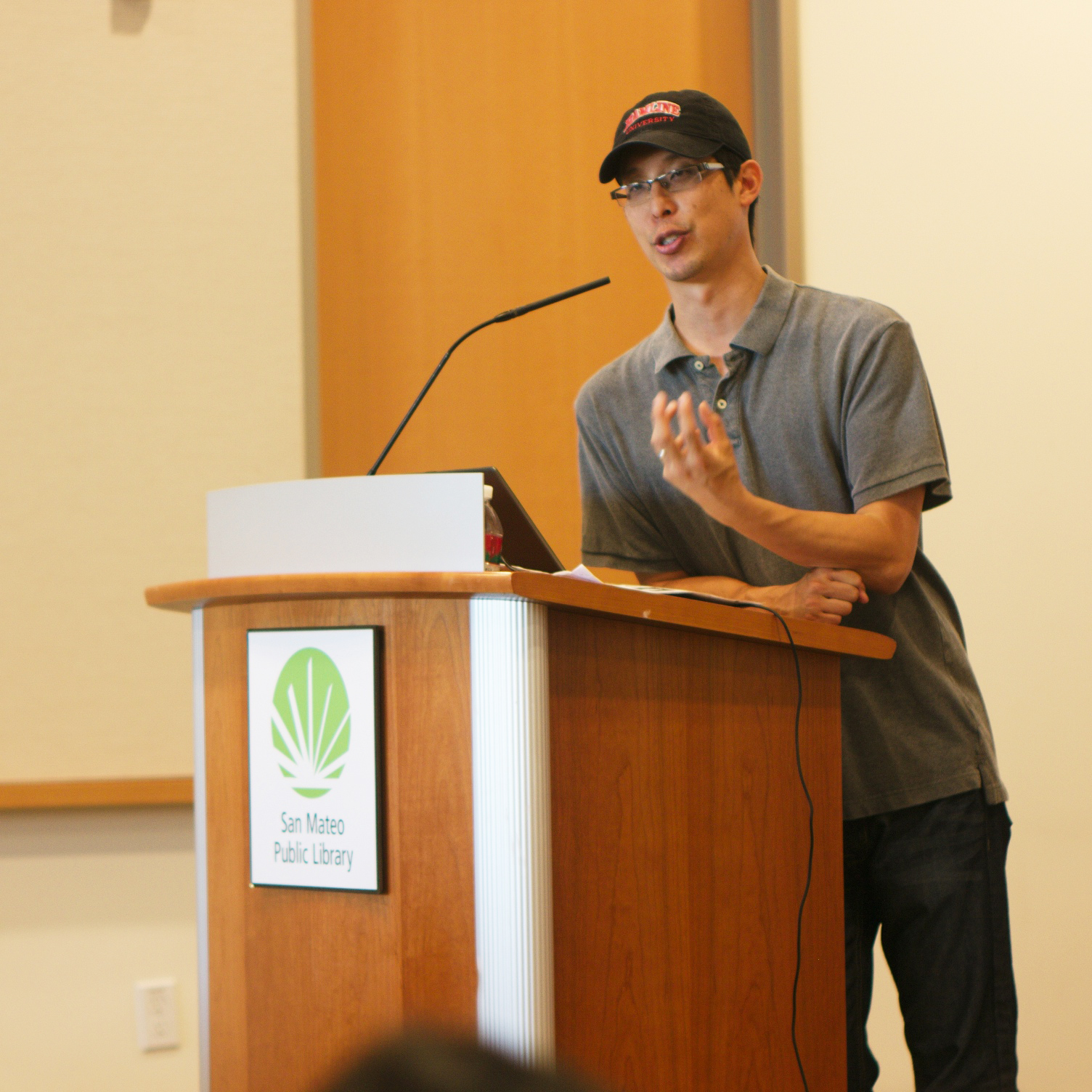
Wikimedia
Gene Luen Yang grew up in a “house of stories.”
During his childhood in California, his parents, immigrants from China and Taiwan, entertained him with tales from “Journey to the West” — a Ming dynasty novel about the adventures of a “kung fu fighting monkey.”
“How awesome is that?” Yang said to a crowd of over 50 on Wednesday evening at the Yale University Art Gallery.
At the lecture, Yang, the fall 2018 recipient of the Chubb Fellowship, spoke of these childhood stories, which compelled him to become a graphic novelist. He also discussed Asian-American visibility in the comic book industry. Yang is the author of “American Born Chinese,” an acclaimed graphic novel centered on a second-generation, Chinese-American protagonist.
“Parents of Asian-Americans everywhere are asking: How could [their child become a graphic novelist]? Because working in comics is not one of the approved career paths,” Yang told the audience, which drew laughter from the crowd. “It is not a doctor or lawyer or engineer.”
Yang pointed to his parents’ stories of Chinese folklore and his early love for cartoons — he once taped a “poster-sized headshot of Walt Disney” to his bedroom wall — as the media that sparked his passion for writing and illustrating. He also found inspiration in the characters of the comic books he read as a child — “The Incredible Hulk,” “Spirit” and “Uncle Scrooge.” In junior high, he often found himself creating comics during lunch while “the more athletic kids played tetherball,” he added.
After graduating from the University of California, Berkeley with a degree in computer science and a minor in creative writing, Yang began independently publishing his own graphic novels. In 2006, he published “American Born Chinese,” which follows Chinese-American preteen Jin Wang as he navigates the challenges of adolescence and racism in a white suburb. The novel, Yang said, was partially based on his own experiences growing up.
“I felt tension between these two halves of myself, between these two cultures … this tension of being Asian and being American, between East and West,” Yang said.
Part of that tension, Yang explained, came from the racism that he internalized after witnessing harmful, stereotypical depictions of Asians in media. He cited Long Duk Dong, a Chinese exchange student in John Hughes’ “Sixteen Candles” who speaks in broken, heavily accented English, as well as “yellow peril” villains in comic books, as racist Asian caricatures that left a harmful impact on his Asian-American identity.
Yang stood in front of a projector screen, upon which he flashed through a slide show of comic book villains, including General Chop Chop, Egg Fu and Fu Manchu.
Yang stressed that one way to reconcile the comic book industry’s racist history with its diverse reader base was by promoting diversity both within and outside comic book universes. Already, he said, there are a large number of Asian-Americans working as graphic novelists, whose efforts to expand diversity in comic book universes have made a tangible impact. He pointed to the Asian-American graphic novelists, who were the first to convince comic book producers to stop coloring Asian characters with bold yellow skin tones.
Yang also noted that many Asian-American artists and writers are drawn to comic books because of the medium’s origins. Early comic book creators — Stan Lee, Will Eisner, Bob Kane — were the children of Jewish immigrants who incorporated their struggles with their own American identity into their work, Yang said.
“From the very beginning, comics were an outsider’s media,” Yang said. “It was a way for these [creators] to find a voice for themselves, to get their stories out into the world … As Asian-Americans, we struggle with this idea of ‘perpetual foreignness,’ no matter how long our families have been here … Comics matter because stories matter, and comics are a way of telling stories, and how we are portrayed within the stories in our culture matters.”
Prior to the talk, Timothy Dwight Head of College Mary Lui, who introduced Yang, described the Chubb Fellowship, which she said was created in 1949 to “foster among Yale undergraduates an interest in public service … and grew over years to include numerous distinguished visitors in national and international affairs.”
Students interviewed after the lecture expressed their enjoyment of Yang’s talk.
“I thought the way [Yang] blended his personal life experiences into his professional life was really inspiring,” said Sara Armstrong ’22. “I was also really interested in the historical aspect of comic books and how he learned to navigate his identity.”
The 2017-18 Chubb Fellowship recipient was Faith Ringgold.
Eileen Huang | eileen.huang@yale.edu .







